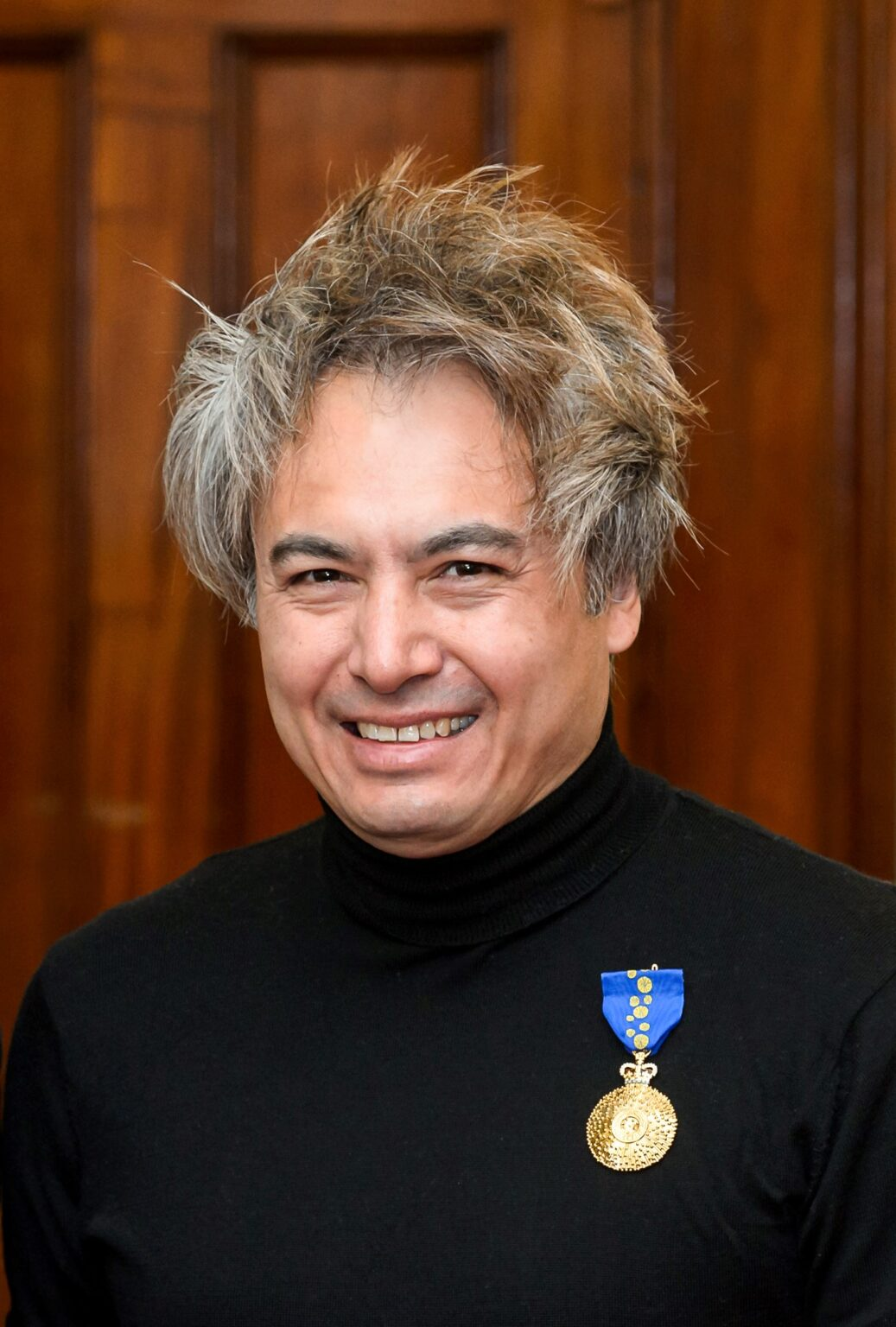
| Prof. Junyang Weng, IEEE Life FellowBrain-Mind Institute and GENISAMA, USAProf. Juyang Weng received a BS degree from Fudan University, in 1982, M. Sc. and PhD degrees from the University of Illinois at Urbana-Champaign, in 1985 and 1989, respectively, all in computer science. He is a former faculty member of the Department of Computer Science and Engineering, faculty member of the Cognitive Science Program, and faculty member of the Neuroscience Program at Michigan State University, East Lansing. He was a visiting professor at the Computer Science School of Fudan University, Nov. 2003 - March 2014, and did sabbatical research at MIT, at Media Lab Fall 1999 – Spring 2000; and at the Department of Brain and Cognitive Science Fall 2006-Spring 2007 and taught BCS9.915/EECS6.887 Computational Cognitive and Neural Development during Spring 2007. Since the work of Cresceptron (ICCV 1993) the first deep learning neural network for a 3D world without post-selection misconduct, he expanded his research interests in biologically inspired systems to developmental learning, including perception, cognition, behaviors, motivation, machine thinking, and conscious learning models. He has published over 300 research articles on related subjects, including task muddiness, intelligence metrics, brain-mind architectures, emergent Turing machines, autonomous programming for general purposes (APFGP), Post-Selection flaws in “deep learning”, vision, audition, touch, attention, detection, recognition, autonomous navigation, and natural language understanding. He published with T. S. Huang and N. Ahuja a research monograph titledMotion and Structure from Image Sequences. He authored a book titledNatural and Artificial Intelligence: Computational Introduction to Computational Brain-Mind. Dr. Weng is an Editor-in-Chief of theInternational Journal of Humanoid Robotics, the Editor-in-Chief of theBrain-Mind Magazine, and an associate editor of theIEEE Transactions on Autonomous Mental Development (now Cognitive and Developmental Systems). With others’ support, he initiated the series ofInternational Conferences on Development and Learning (ICDL), theIEEE Transactions on Autonomous Mental Development, the Brain-Mind Institute, and the startup GENISAMA LLC. He was an associate editor of theIEEE Transactions on Pattern Recognition and Machine Intelligence and theIEEE Transactions on Image Processing. Speech Title:Post-Selection Misconduct Protocol in Two Nobel Prizes 2024 and a Holistic Solution Abstract: This talk will first review the history of Nobel Prizes from the natural intelligence point of view, with the role of Albert Einstein’s relativity work in the Nobel Prizes for physics. Indeed, the Nobel Prize committees face great intellectual challenges in modern science. As two examples, the talk analyzes the Nobel Prize for Physics 2024 and the Nobel Prize for Chemistry 2024 which deal with machine learning using a Post-Selection protocol that has flooded the AI and machine learning field. This talk will explain why the Post-Selection is a misconduct protocol for experiments that suffers from three misconducts: (A) cheating in the absence of a test; (B) hiding bad-looking data; and (C) exaggerating the accuracy. Finally, the talk will review how conscious learning will address the local minima problem that Post-Selection faces among the 20 million dollar problems, as well as Developmental Networks as a holistic solution to all the 20 million dollar problems. |
Prof. Por Lip Yee, IEEE Senior MemberUniversiti Malaya, MalaysiaDr. Lip Yee, an esteemed Professor at the Department of System and Computer Technology within the Faculty of Computer Science and Information Technology at the Universiti Malaya, Malaysia, earned his Ph.D. from the Universiti Malaya under the mentorship of Prof. Abdullah bin Gani in 2012. He is also a senior member of the IEEE. Since then, Dr. Por has made significant contributions to academia, research, and industry. Dr. Por's research endeavors have been at the forefront of technological advancement, particularly in the domains of security and quality assurance of information (NEC 2020: 0611) and machine learning (NEC 2020: 0613). His research interests include machine learning, support vector machines, deep learning, long-short-term memory, computer vision, AIoT, IoT, blockchain, authentication, graphic passwords, PIN-entry, cryptography, data hiding, steganography, and watermarking. His pioneering work has garnered recognition both nationally and internationally, with over 100 academic papers published in reputable journals. Notably, he was among the first few pioneers to publish in the top 1% of ISI journals, with commendable citations across platforms such as Web of Science, Scopus, and Google Scholar. Web of Science (H-index: 18, 1343 citations), Scopus (H-index: 22, 1748 citations), and Google Scholar (H-index: 29, 2777 citations) databases (last update: July 13, 2024). https://www.webofscience.com/wos/author/record/B-5309-2010 Speech Title:The Impact of Artificial Intelligence on Contemporary Journalism Abstract: The integration of artificial intelligence (AI) in journalism is reshaping the way news is gathered, produced, and distributed. This study explores the transformative role of AI-driven technologies, including natural language processing (NLP), machine learning (ML), and big data analytics, in enabling automated content generation, personalized news recommendations, and trend analysis. While these innovations enhance operational efficiency and audience engagement, they also pose challenges such as deepening the digital divide and reinforcing filter bubbles, potentially marginalizing certain communities and limiting exposure to diverse perspectives. Addressing these concerns requires the development of inclusive AI algorithms, initiatives to enhance digital literacy, and policies that promote equitable access, ensuring that AI-powered journalism benefits all segments of society. |
|
| Prof. Azlan bin Mohd Zain, IEEE MemberUniversiti Teknologi Malaysia, MalaysiaProfessor Zain is currently a professor of Faculty of Computing (FC), Universiti Teknologi Malaysia, Malaysia. His research interests include Optimization, Manufacturing Process Mechanics, Mechanical Processes, Computational Intelligence, Simulation, Statistical Modeling, Pattern Recognition, Prediction, Networking, Machine Learning. He has published 180 papers in prestigious journals, including 12 papers in 2024. In addition, he has won several honors in international competitions in the field of computing, such as: Silver Medal of International Innovation, Invention & Design Competition, Silver Medal of Moulded Parts Produced Through an Innovative Design of MGSS Conformal Cooling Channels, Silver Medal of International Eureka Innovation Exhibition, Research Award of Excellent Service Award Citra Karisma 2019, Silver Medal of International Eureka Innovation Exhibition, Gold Medal of Bangkok International Intellectual Property, Invention, Innovation and Technology Exposition, Silver Medal of International Eureka Innovation Exhibition and so on. Speech Title: Big data visualization-challenge and tools Abstract:This sharing session presents the fundamentals of big data visualization, and the high dimensional visualization concept is also discussed. The concept of data analytic is then explained to support the understanding of high dimensional visualization. This session will also highlight several tools that are used for data visualization and analysis. |
Prof. (Dr.) Sailesh Suryanarayan Iyer (Post Doc, Ph.D)Professor and Dean, Rai School of Engineering, Rai University, IndiaDr. Sailesh Iyer has a Ph.D. (Computer Science), Post Doc from University of Louisiana, Lafayette, USA (Public University ranked among the top 100 Public Universities) and currently serving as a Professor with Rai University, Ahmedabad. He has more than 23 years of experience in Academics, Industry and Corporate Training out of which 18 years are in core Academics. He has been awarded Research Excellence Award for years 2021 and 2022 by Rai University and an Honorary Adjunct Research Scientist at Neurolabs International under Dana Brain Health Institute, Iran from August 2022 to August 2025. He has several Patents granted and published to his credit and is involved as an Editor for various book projects with Elsevier, IGI Global (USA), CRC Press Taylor and Francis (UK) and Bentham Science (UAE). He has been invited as Keynote Speaker in various International Conferences held in China, Indonesia, Philippines, Saudi Arabia, Haiti, Ukraine, Italy and India. A hardcore Academician and Administrator, he has excelled in Corporate Training, Delivered 150+ Expert Talks in various AICTE sponsored STTP’s, ATAL FDP’s, Reputed Universities, Government organized Workshops, Orientation and Refresher Courses organized by HRDC, Gujarat University. Research Contribution include reputed Publications, Track Chair at ICDLAIR 2020 (Springer Italy), icSoftComp 2020, IEMIS 2020 (Springer), ICRITO 2020 (IEEE), ARISE-2021, FTSE-2021 and TPC Member of various reputed International and National Conferences, Reviewer of International Journals like Multimedia Tools and Applications (Springer), Journal of Computer Science (Scopus Indexed), International Journal of Big Data Analytics in Healthcare (IGI Global), Journal of Renewable Energy and Environment and Editor in various Journals. Expert Talk on Research based topics in various Universities and Conferences in addition to guiding Research Scholars as Supervisor. He has also been invited as a Judge for various events, Examiner for Reputed Universities, is a Computer Society of India Lifetime Member and also serving as Managing Committee (MC) Member, CSI Ahmedabad Chapter from 2018-2020. Speech Title: Data Analytics For Sustainable Development Goals Abstract: TBD |
|
| Prof.Adrian David Cheok, IEEE Senior MemberNanjing University of Information Science and Technology, ChinaAdrian David Cheok AM FIET FIEAust FRSA is Full Professor at Nanjing University of Information Science and Technology, Director of the Imagineering Institute, Malaysia, Visiting Professor at Raffles University, Malaysia, Visiting Professor at University of Novi Sad-Serbia, on Technical faculty “Mihailo Pupin”, Serbia, Faculty of Ducere Business School, and CEO of Nikola Tesla Technologies Corporation. In 2024, Professor Adrian David Cheok was honored with induction as a Full Member into Sigma Xi USA, The Scientific Research Honor Society, a recognition that not only signifies his dedication to scientific excellence but also aligns his contributions with those of groundbreaking researchers. Sigma Xi is a beacon of distinction within the global scientific community, boasting over 200 Nobel Laureates among its members, including luminaries such as Albert Einstein. This prestigious society is renowned for its commitment to the advancement of science and engineering and includes among its distinguished members other eminent personalities like Linus Pauling and Guglielmo Marconi, whose pioneering work has indelibly shaped the landscape of modern science and innovation. Professor Cheok’s association with Sigma Xi marks a pinnacle in his career, affirming his commitment to the ethos of rigorous and impactful scientific inquiry. Speech Title: Everysense Everywhere Human Communication Abstract:This talk outlines new facilities that are arising in the hyperconnected internet era within human media spaces. This allows new embodied interaction between humans, species, and computation both socially and physically, with the aim of novel interactive communication and entertainment. Humans can develop new types of communication environments using all the senses, including touch, taste, and smell, which can increase support for multi-person multi-modal interaction and remote presence. In this talk, we present an alternative ubiquitous computing environment and space based on an integrated design of real and virtual worlds. We discuss some different research prototype systems for interactive communication, culture, and play. |




